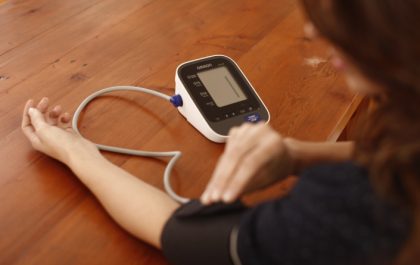Berlin, Germany – A new analysis from the blood-pressure-lowering part of the ADVANCE trial in patients with type 2 diabetes shows that the fixed-dose combination antihypertensive perindopril/indapamide (Servier) slowed the development or progression of renal disease compared with placebo, even in patients whose initial blood pressures were in the normal range.
Prof John Chalmers
ADVANCE investigator Prof John Chalmers (George Institute, Sydney, Australia) commented to heartwire: "We have shown that there is a benefit in terms of an approximately one-fifth reduction in nephropathy from lowering blood pressure in type 2 diabetics, whatever [the patient's] blood pressure at baseline. We saw a similar benefit throughout the whole spectrum of starting pressures, from low normal right through to severely hypertensive. In those individuals who did not have nephropathy at baseline, the active treatment reduced the chance of it developing, and in those who did already have some renal damage, the combination of perindopril and indapamide slowed the progression and increased the chance of regression."
He added, "There was a clear association between risk of renal damage and blood pressure, with the lowest risk at the lowest pressures, right down to a systolic pressure of 106 mm Hg. We found no evidence of a J-shaped curve. This goes beyond the guidelines, which currently recommend lowering systolic pressure to 125 mm Hg in diabetes patients with renal disease, and thus this could justify changing the guidelines to reflect our results."
Main results from the blood-pressure part of the ADVANCE trial showing a reduction in major events (including death) with the perindopril/indapamide combination compared with placebo in a broad range of type 2 diabetic patients, regardless of their blood pressure at baseline, was first reported at the 2007 European Society of Cardiology (ESC) Congress and published in the Lancet last September.
The current analysis, presented at Hypertension 2008, the joint congress of the International Society of Hypertension and the European Society of Hypertension, being held here this week, focuses on diabetic nephropathy.
The researchers explain that blood pressure is a key determinant of nephropathy risk in type 2 diabetes patients, with most guidelines recommending reducing blood pressure to 130/80 mm Hg or to 125/75 mm Hg if nephropathy is already present. The current ADVANCE analysis focused on whether routine blood-pressure lowering in all type 2 diabetes patients would provide renoprotection, extending blood pressure reductions below these targets.
The 11 140 diabetes patients in the ADVANCE trial were randomized to the perindopril/indapamide combination or to placebo. Treatment was given regardless of initial blood pressure or other blood-pressure-lowering drugs for an average follow-up of 4.3 years. Mean BP fell from 145.0/80.6 mm Hg at entry to 134.7/74.8 mm Hg for patients on active treatment and to 140.3/77.0 mm Hg for those on placebo, a difference of 5.6/2.2 mm Hg (p<0.0001). The primary outcome for this analysis was a composite of new microalbuminuria or new or worsening nephropathy, based on urinary albumin/creatinine ratios and serum creatinine collected at baseline and regularly during follow-up. This showed a significant reduction.
Artigos relacionados
Veja também
Medicamentos para emagrecer são seguros para o coração?
Atualmente temos alguns medicamentos aprovados pela ANVISA para tratar a obesidade no Brasil, como o Orlistat, Sibutramina, Liraglutida e Semaglutida. Orlistat (Lipiblock, Xenical) 1- Atua inibindo a absorção de parte da gordura dos alimentos. 2- Não apresenta efeitos sobre o sistema cardiovascular, logo, pode ser…
Alteração difusa da repolarização ventricular (ADRV)
O termo alteração difusa de repolarização ventricular é utilizado em laudos de eletrocardiograma (ECG) para descrever alterações do segmento ST do ECG, como ausência, achatamento ou inversões assimétricas das ondas T. Alguns médicos podem empregar a abreviatura ADRV. A onda T é um dos elementos…
Benefícios do controle da pressão arterial
O controle adequado da pressão arterial (PA) é uma medida vital para preservar a saúde cardiovascular e evitar complicações sérias. Primeiramente, manter a PA dentro dos limites normais reduz significativamente o risco de doenças cardiovasculares, incluindo acidentes vasculares cerebrais (AVCs) e ataques cardíacos. Quando a…
Você sabe o que é a miocardiopatia não compactada?
A miocardiopatia não compactada (MNC), também conhecida como miocárdio não compactado, é uma condição rara do músculo cardíaco que afeta a estrutura do ventrículo esquerdo (VE). O VE é a principal das quatro câmaras do coração. Ela bombeia o sangue oxigenado em direção ao cérebro…





